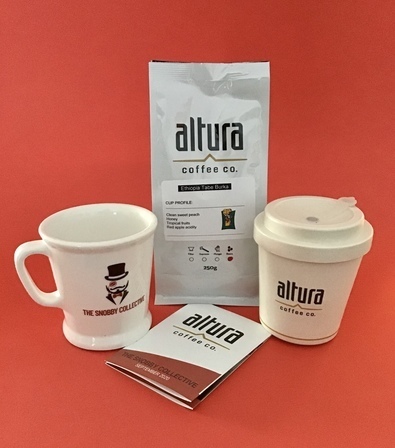September 2020
Feature #23
We first featured Altura Coffee Co. back in April 2019, with a Ethiopian coffee, from Oromia (Guji zone) and it was a favourite of all who tried. When we spoke of another collboration, it was with great anticiption we learned yet again there was an Ethiopia Oromia on offer. The bar had previously been set very high, with coffees from Oromia but this fully washed offering was something special, not to mention unusual from Ethiopia.
THE PRODUCER:
Founder of the Tabe Burka washing station, Tadesse Edema is a Guji native from a coffee centric family. From a family of 29 brothers, some of whom are famous in the Guji zone for the quality lots they produce in Uraga and Ambeia, all work within the coffee industry. Tadesse himself a pioneer, back in 2008 was one fo the first to build a washing station (Tabe Burka) in Uruga. This pioneering spirit paved the way for the Oromia Union to construct their own washing station, the well known Layo Teraga Cooperative WS. He is also known for having built roads and schools in the region as well as owning farms in Anasora and Shakiso. Located within the Guji Zone and bordered by Ode Shakiso in the South East and Gedeb (Yirgicheffe) in the West, Tabe Burka collects coffee from approx. 300 lot holders, many of whom also cultivate maize trees, false banana and fruit trees. Tadesse pays farmers in advance, at the beginning of harvest as an incentive for a quality focus. Using water from the Burka river, coffee is washed at Tabe Burka CWS before being laid out to dry. This particular lot was fermented for 36-72 hours, with the water changed 3 times. After fermentation coffee was floated through grading channels before the highest grade was soaked for an additional 8-12 hours (Fully Washed process). Until the change within the ECX (Ethiopia Commodity Exchange) in 2019 coffee from Tabe Burka was delivered to a regional warehouse and its origins obscured.
ETHIOPIA COMMODITY EXCHANGE:
The Ethiopian Commodity Exchange (ECX) began trading in April 2008 with the vision of providing a complete and modern solution to the trading of commodities, including coffee. The benefits of such a system spanned from standards for grading and sorting to storage, warehousing and delivery. The procedures adopted by the ECX ensured efficiency, security and trust throughout the transaction with the intention of removing the historical disadvantages and inequalities within the coffee industry, created by political imbalances that affected industry regulations. Prior to the introduction of the ECX, the agricultural market in Ethiopia suffered from high cost and high risk of being financially cheated. This saw many Ethiopian producers trade with those who they knew in an effort to minimise risk. Coffee was sold on a visual quality basis with minimal information and no quality assurance to local merchants. These factors left the small scale farmers who account for 95% of the market, unable to negotiate higher prices or reduce risk when dealing with merchants, as a result of local selling to mitigate risk, Ethiopia found itself globally isolated, with only 1/3 of product reaching the market globally.
GAINING TRANSPARENCY:
Despite the best intentions of the ECX, one of the major limitations created by it was the lack of traceability. The lack of traceability was done by design, and with the best of intentions. With teams of experts grading, and cupping coffees solely on region and cup quality, buying was done so on the quality of the cup, not on the reputation of the name. For the majority of the over 5 million small lot holders, the ECX was the only option for selling. For markets demanding more transparency, there was the option buying through “second window”. Although some exceptions were made for cooperatives and larger farms to obtain export licenses (second window), very few fell into these categories, some 88% of coffee exported went through the ECX until the Coffee and Tea Development and Marketing Authority passed a mandate in 2017 to allow full lot traceability through the ECX. The mandate also allowed provisions for producers to process, market and export their own coffee directly, giving them greater control of the price they receive, something that is of great incentive to those who are quality focused.
TASTING NOTES:
Country: Ethiopia
Region: Guji
Sub Region / Town: Uraga
Producer: Tabe Burka Washing Station
Altitude: 1900 – 2300 MASL
Varietal/Species: JARC varieties*, Local Landraces**
Process: Fully Washed
Contributor land size: <5 hectares="" on="" average="" p="">
Tasting notes: Clean Sweet Peach Honey Candied Tropical Fruits Red AppleAcidity
*JARC Jimma Agricultural Research Centre est. 1967
**Local Landrace Varieties have evolved over generations of selective breeding to thrive in local conditions. There are 130 widely cultivated local or regional landrace Varieties
RECIPE:
Pour Over:
Ratio: 1:16
Grind: Slightly finer than filter
Brewer: December Dripper
Time: 3 minute brew time
|
© Copyright Derelict Coffee Roasters |

